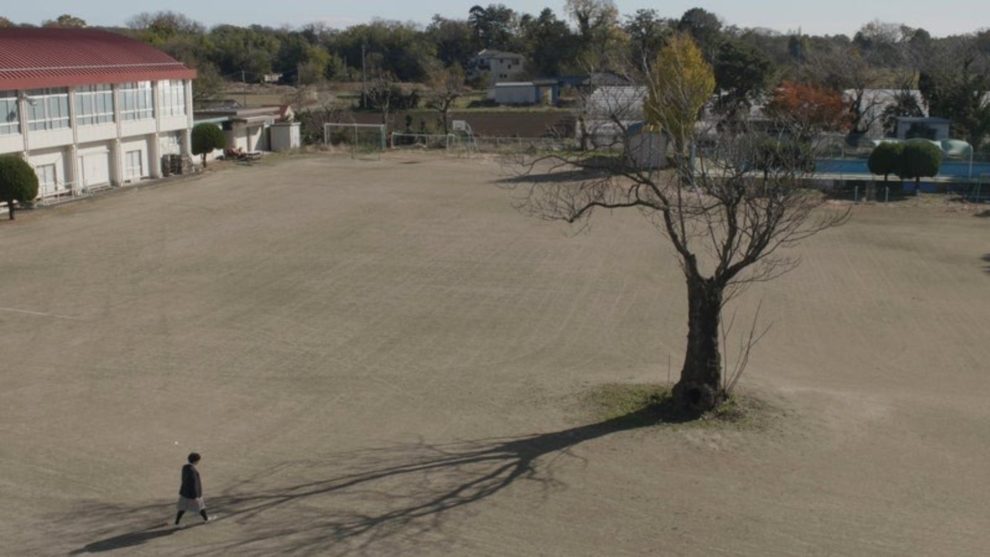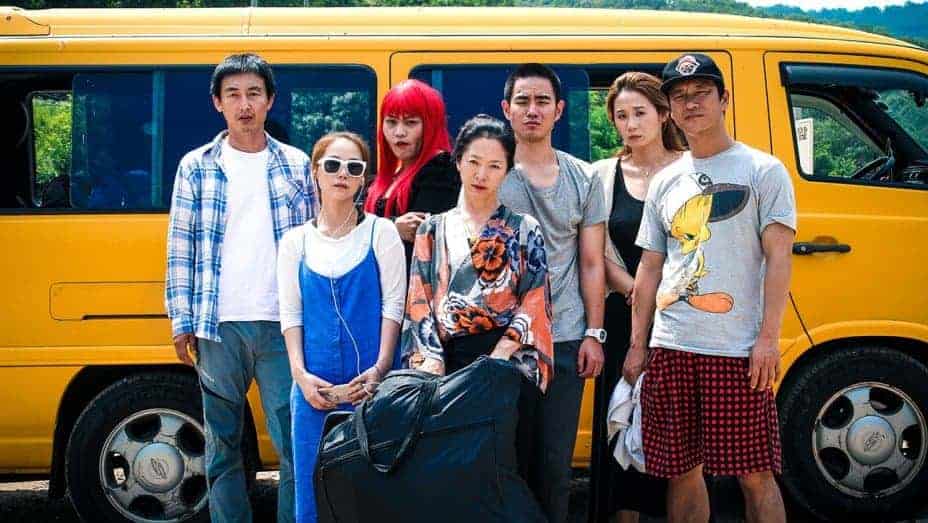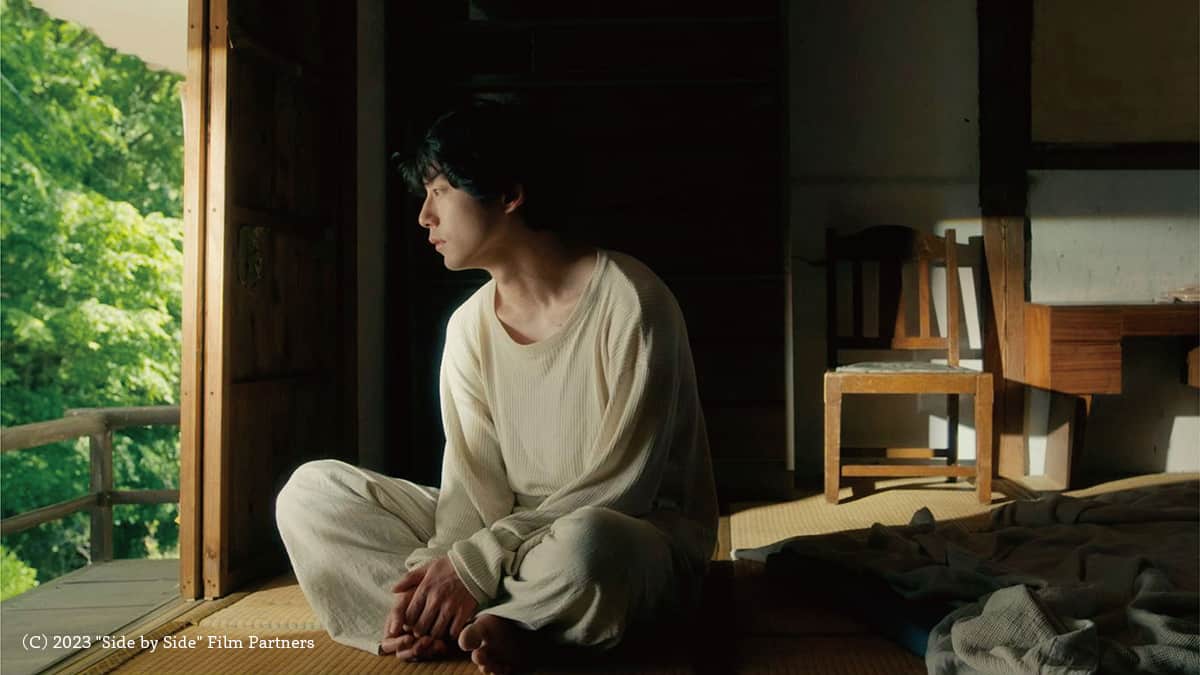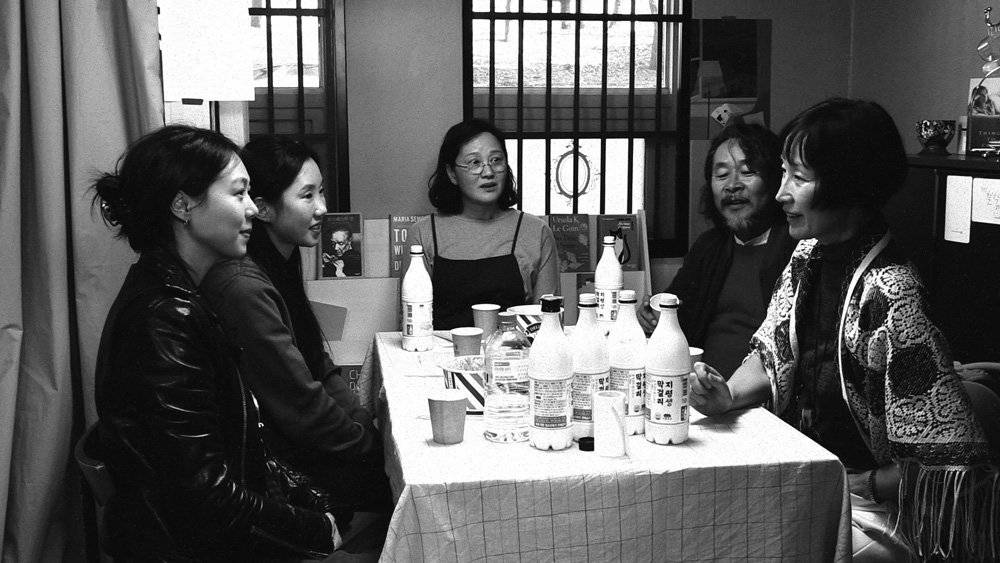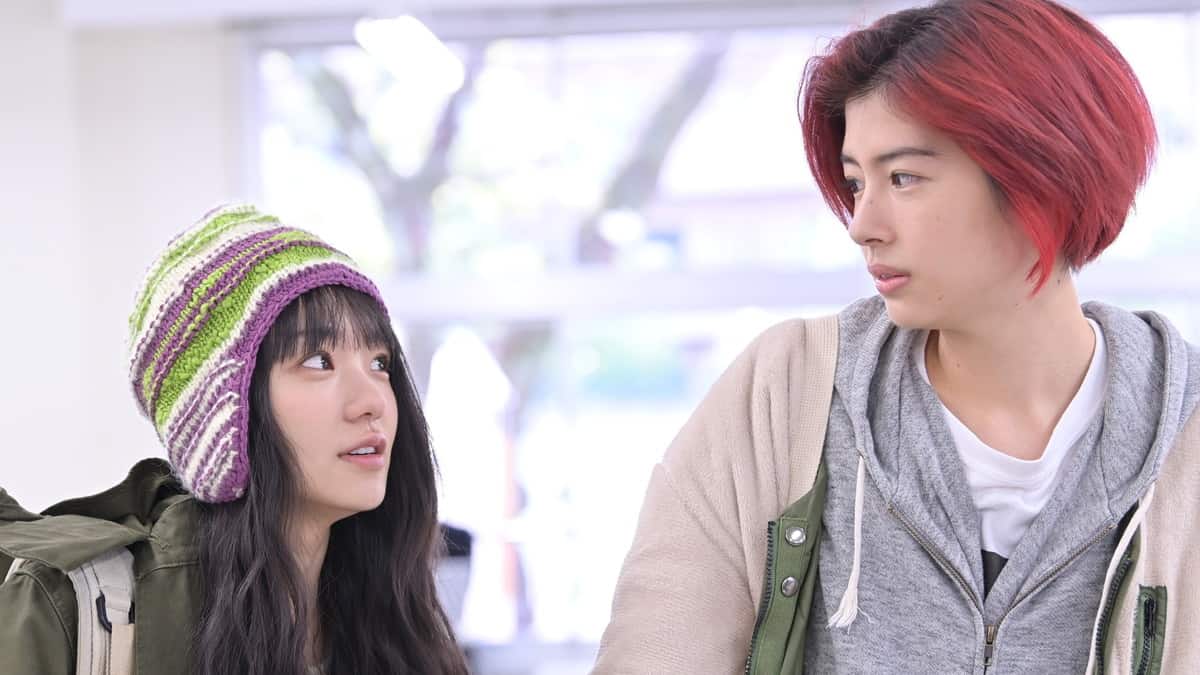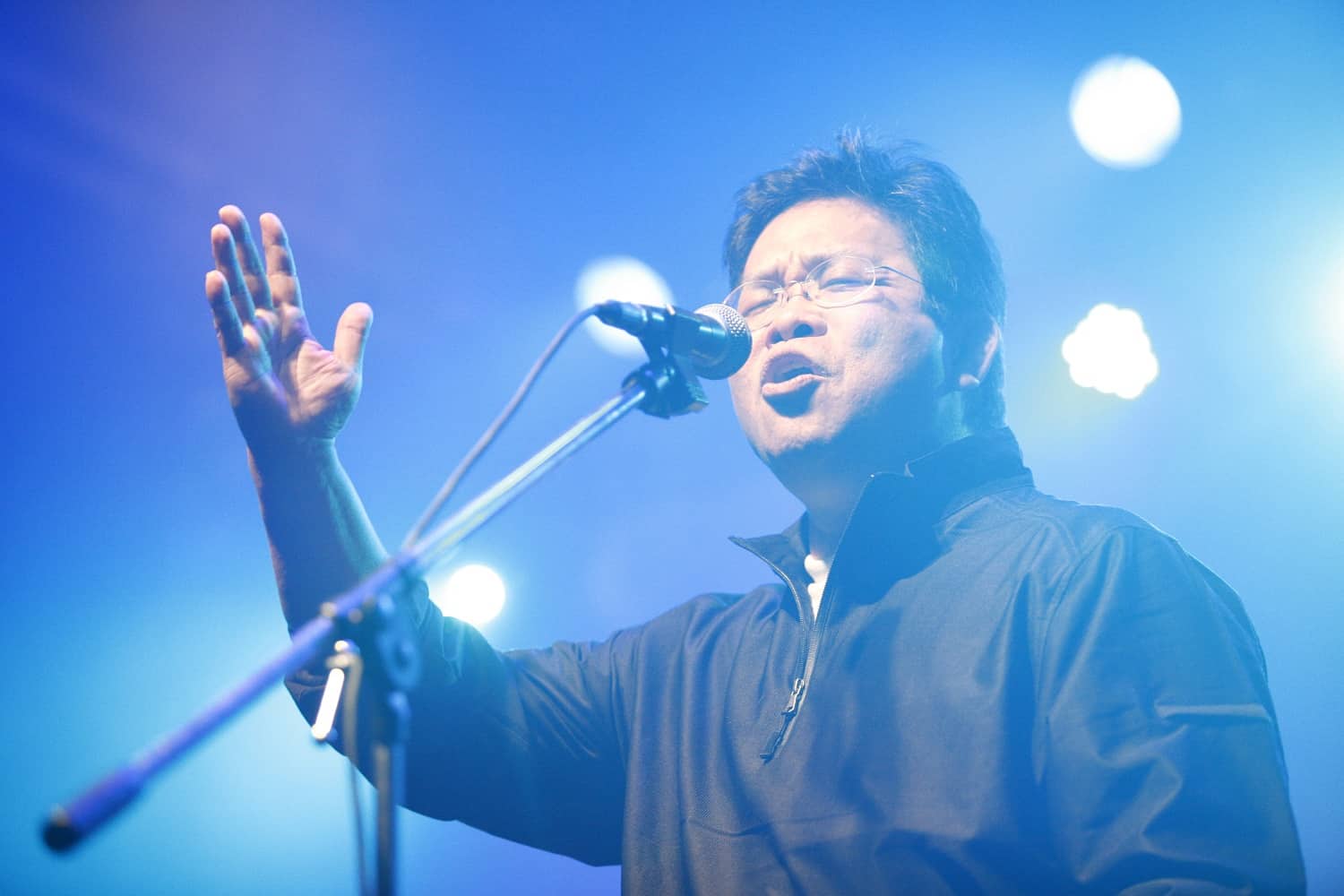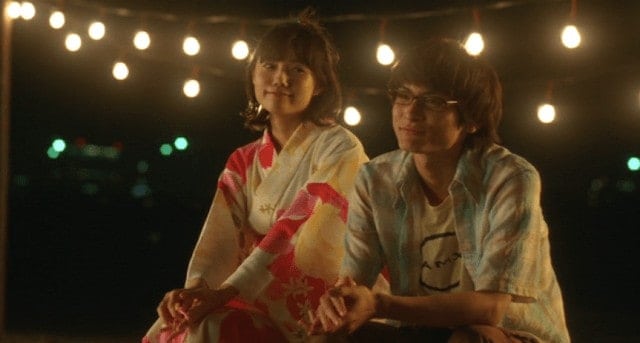Loneliness, silence, the general lack of communication, and following a particular routine every day are often misjudged, particularly during school times, with the people who act in that way frequently considered as “weirdoes” or even Being on the Spectrum. Tamochi Daisuke directs a film about such a person, which presents a different perspective on the concept.
“Into the Wrinkles of Winter” screened at the 42nd PIA Film Festival
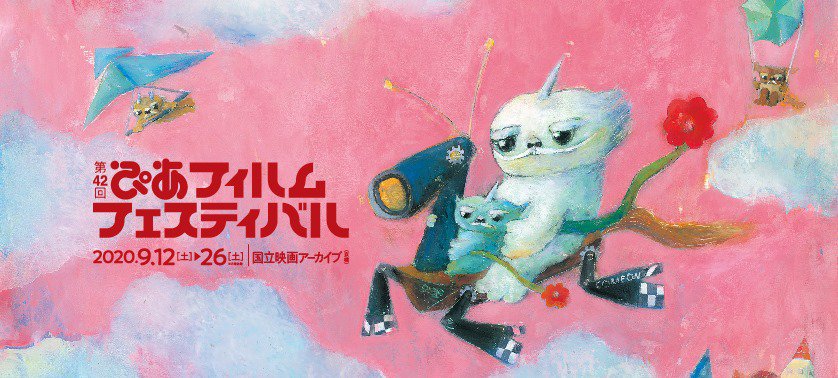
Ikumi is always alone, shows no need to communicate or interact with her high school classmates, or anyone for that matter. Instead, she follows her own routine every day, which ensures as much alienation from everyone as possible. She goes to school earlier than anyone and goes out on the balcony of the empty classroom to take care and draw sketches of a leafy plan. She stops to the same convenience store to buy lunch, with the woman who runs it “informing” her of the latest “news”, without ever receiving a response though. Then she attends a cafe where she has the same green-colored drink, while eavesdropping to the conversations of the other patrons, which also serve as inspiration for the things she draws. Honoka, a classmate, takes an interest in her actions and tries to befriend her, but to no avail.

Tamochi Daisuke directs a film whose main message seems to be that solitude can be a choice and not a problem, particularly for artists, who frequently need this loneliness in order to be inspired and to work. The fact that Ikumi essentially manages to find herself, her sense of purpose and to make some decisions about her life through this routine, intensifies this concept, which is also presented as an alternative to the usual methods associated with growing up, mostly focusing on social skills. Furthermore, that most people do not usually understand this kind of behaviour, thus misjudging it through the prisms mentioned in the prologue, is another comment presented here, which Daisuke also seems to direct to his viewers, whom, probably, will not understand Ikumi's behaviour throughout the film, at least until the unfolding-paper scenes in the end.
Lastly, and on a different comment deriving from Honoka's attitude this time, Tamochi states that for “normal” people to not give up on the “eccentrics” can eventually have a great result, since the latter also have a need for friends and social interactions, just not to the same level as the former. The finale of the movie cements this comment in the most delightful fashion. Chisa Aone as Ikumi manages to incorporate all the aforementioned elements through a silent eloquence, in perfect resonance with the film's aesthetics.
Regarding the cinematic style of the title, there is a permeating minimalism through the repetition of Ikumi's actions, which suits the overall aesthetics to perfection, as the whole movie could be perceived as one taking place in the protagonist's mind. This repetition is interrupted by the walks Ikumi takes, which are mostly presented through long shots, providing a much needed relief from the repetitious style of the narrative. The same applies to the focus on the intently green drink she enjoys at the cafe, which is essentially the only splash of color in the whole production. At the same time, the overall style, both cinematically and contextually, is quite reminiscent of Hirobumi Watanabe, who is the one that has “perfected” the approach Tamochi tries to implement here. The sole fault of the narrative is that it is a bit difficult to get in the shoes of the protagonist and understand what the movie is about, despite the fact that this also seems to be the point.
Daisuke Tamochi takes the “festival approach” to his filmmaking, through a movie that demands patience and analysis from its viewer to understand it, much like Ikumi does.


